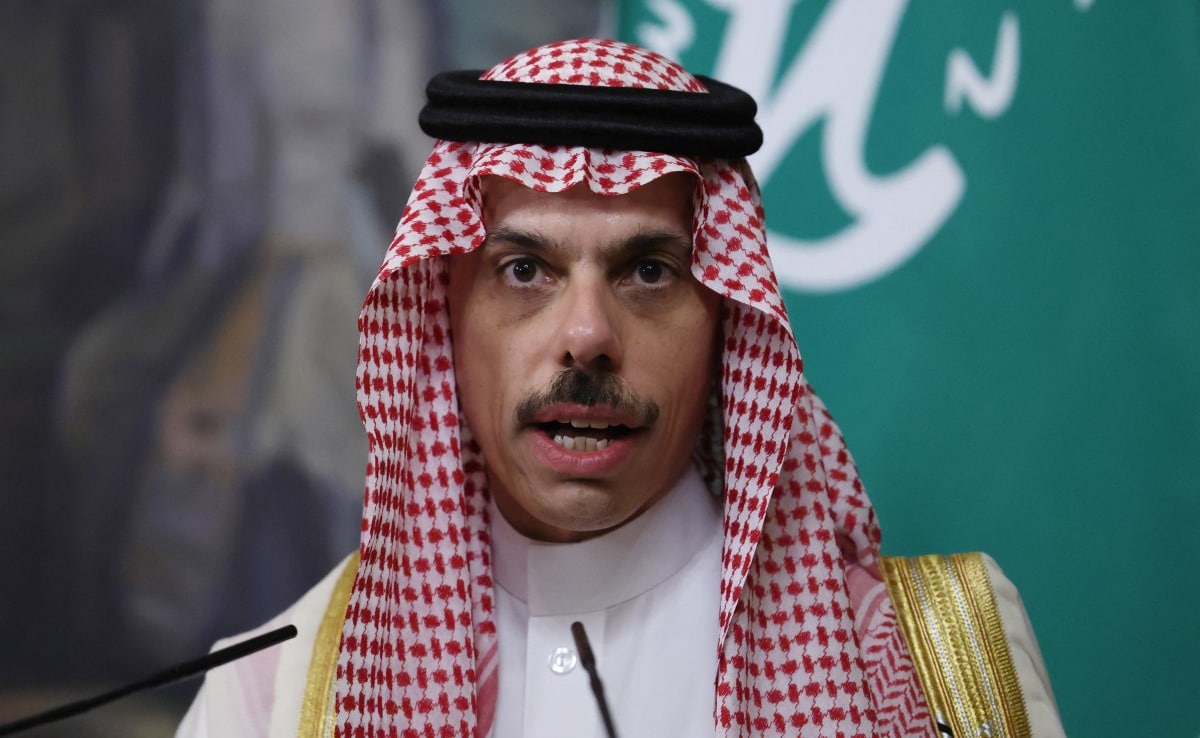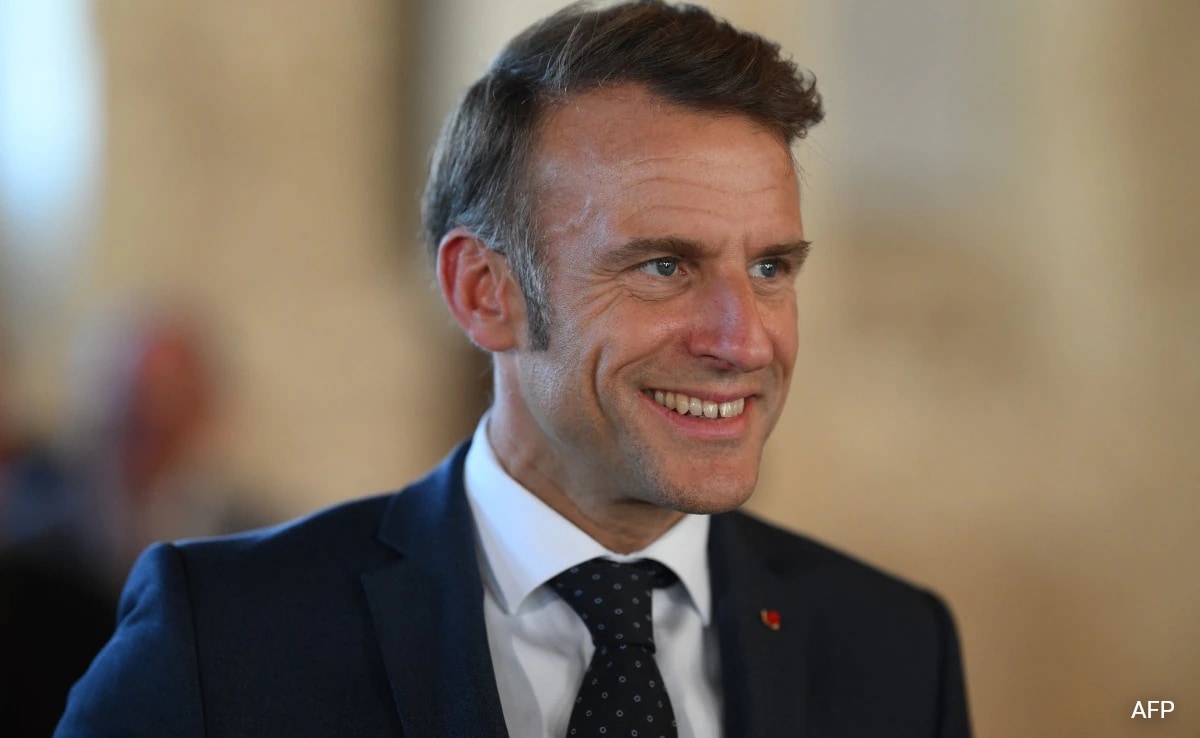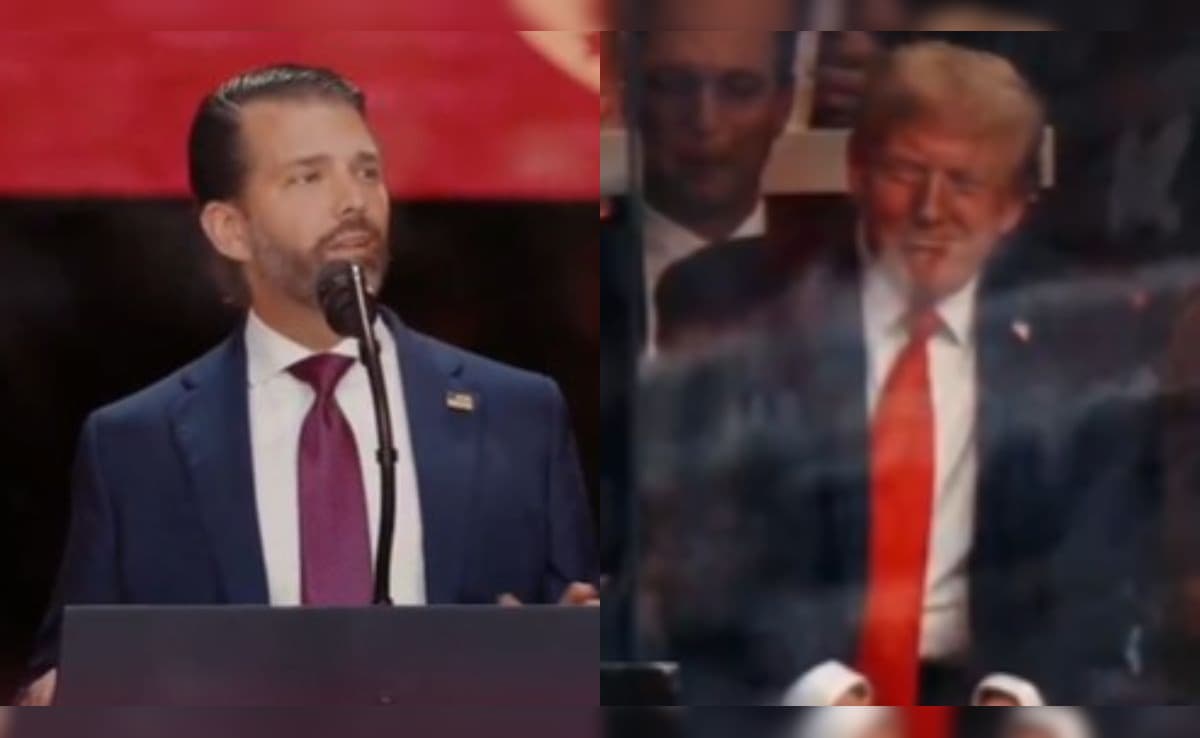As the war reached the one-month mark, Biden joined leaders from the Group of Seven nations and the European Union in projecting a unified front against Russia’s invasion of Ukraine while announcing additional measures to isolate the Kremlin. New sanctions will target more than 400 Russian individuals and entities, including lawmakers and defense companies. Separately, G-7 leaders warned Putin against using chemical or nuclear weapons.
At a news conference, Biden said that during emergency talks with NATO leaders, he raised the possibility of inviting Ukraine to the G-20 summit in October if host country Indonesia or other nations object to excluding Russia. Putin plans to attend the meeting of the world’s largest economies; any decision is up to member nations.
The war has forced more than 3.6 million people to flee Ukraine, with civilians continuing to experience the most devastating consequences. There is also growing concern of the wider ripple effects, with French President Emmanuel Macron warning of an “unprecedented food crisis” and urging emergency action.
Here’s what to know
Amid Putin’s witch hunt, a severed pig’s head sends an ugly message
Return to menuAfter Russian President Vladimir Putin unleashed a witch hunt for “scum and traitors” last week, activists and antiwar figures have found the word “traitor” painted on their apartment doors, often alongside the “Z” symbol that has come to signify support for Putin’s war against Ukraine.
In the latest ugly incident Thursday, someone left a severed pig’s head on the doorstep of Alexei Venediktov, one of Russia’s most prominent media voices and former editor in chief of the liberal radio station Echo of Moscow, before it was closed down eight days after Russia invaded Ukraine.
The severed head was arranged on a white curly wig, apparently meant to resemble Venediktov’s hair. A sticker representing the Ukrainian coat of arms was left on his door, with an antisemitic label stuck to the emblem.
“The country that defeated fascism,” Venediktov, who is of Jewish origin, posted on Telegram, referring to the Soviet Union’s role in fighting Nazi Germany and storming the Reichstag in Berlin in World War II. “Why not a six-pointed star on the door of my apartment?”
“They decided to intimidate me and my family?” he posted, adding that he had seen worse when he was seized by Chechen rebels in 1994 and subjected to a series of fake executions.
After Russia’s invasion of Ukraine, Echo of Moscow reported on the war, even after authorities instituted tough wartime censorship, banning the words “war,” “invasion” and “attack.” Echo of Moscow was swiftly blocked by Russian authorities, and days later, state-owned gas giant Gazprom, which held a controlling stake, shut the station down.
Putin has long claimed that the station was a foreign-funded project to undermine the Russian state.
Venediktov, who has almost 300,000 followers, posts news constantly on his Telegram channel, including U.N. reports on civilians and children killed in Ukraine. He quotes Ukrainian and Russian officials, maps troop movements in Ukraine, and shares news about the impact of sanctions on Russia and about the repression of protesters and free speech.
Putin said in a speech last week that Russia would spit out “scum and traitors,” and pro-Western “fifth columnists,” who were out to destroy Russia. He accused Russians who look to Western liberal ideas as being guilty of “slavish thinking.”
And he called for a “natural and necessary self-cleansing of society” to leave Russia purified, unified and strong.
12 Russian officers refuse to fight in Ukraine, deem order illegal
Return to menuTwelve Russian special police officers within the country’s national guard, or Rosgvardia, refused an order from their superiors to go fight in Ukraine and were dismissed from service, according to human rights lawyers now representing them in court.
In early February, officers in the force’s Krasnodar region were sent to Crimea, which Russia annexed from Ukraine in 2014, to take part in what their commanders told them was a military exercise. Later, they received orders to go to Ukraine, which they deemed illegal.
“None of them had a foreign passport with them, nor any intention to leave Russia as their direct official duties are limited to Russian territory,” Pavel Chikov, chair of Agora International Human Rights Group, said in a statement published on his Telegram channel Thursday.
Crossing the Russian-Ukrainian border without a document would have been illegal under Russian law. Doing that as part of an armed group would violate Ukrainian laws, Chikov clarified.
“None of the plaintiffs were informed about a business trip to Ukraine to participate in a special military operation or its tasks and conditions,” he added. “As a result, they did not give consent to it.”
Russia’s national guard is an internal military force generally tasked with protecting public order and guarding critical state facilities. Since the invasion, some of its units have been operating in Ukraine and were seen holding ground around nuclear power plants Russian forces have overtaken.
After their refusal to participate in the invasion, the officers were taken back to Krasnodar, subjected to a disciplinary probe and then fired. They are now suing their unit for wrongful termination.
“They decided not to go to Ukraine independently and on their own,” their lawyer Mikhail Benyash said. “There are quite a lot of such ‘refuseniks’ throughout Russia, but only these have gathered enough courage to sue. The rest gave up without a fight, which says a lot about them as fighters.”
According to Benyash, the group consisted of 11 officers and one platoon commander from the “Plastun” unit. Chikov identified the platoon leader as Capt. Farid Chitav.
“Personally to me, it seems that taking part in such events where people shoot and could be killed should be made exclusively on a voluntary basis,” Benyash said. “As long as the Russian authorities think otherwise, we will have to argue with them.”
Biden says NATO will respond ‘in kind’ if Russia uses chemical weapons
Return to menuAt his news conference in Brussels on Thursday, Biden said NATO’s response if Russia used chemical weapons in its invasion of Ukraine “would depend on the nature of the use.”
“We would respond. We would respond,” Biden said. “If [Putin] uses it, the nature of the response would depend on the nature of the use.”
Biden’s remarks came shortly after Group of Seven leaders issued a warning Thursday to Putin against the use of chemical, biological or nuclear weapons.
“We recall Russia’s obligations under the international treaties to which it is a signatory, and which protect us all,” the G-7 leaders stated.
Later, Biden did not go into detail about whether NATO would respond militarily if Putin deployed chemical weapons in Ukraine.
“It would trigger a response in kind,” Biden said. “Whether or not you’re asking whether NATO would cross … we’d make that decision at the time.”
Biden voices support for excluding Russia from G-20
Return to menuPresident Biden on Thursday voiced support for removing Russia from the Group of 20, an assembly of the world’s largest economies, as a consequence of its ongoing invasion of Ukraine.
“My answer is yes,” Biden said at a news conference at NATO headquarters in Belgium in response to a question about whether Russia should be excluded.
Russian President Vladimir Putin plans to attend the G-20 summit that is being hosted by Indonesia in October, Russia’s ambassador to the Southeast Asian country said Wednesday.
Biden said the decision would ultimately be up to the nations of the G-20.
He said that, during emergency talks with NATO leaders Thursday, he raised the possibility of inviting Ukraine to the G-20 meeting if Indonesia or other nations object to excluding Russia. The result, Biden said, would be “basically Ukraine being able to attend the G-20 meeting to observe.”
Jakarta has long had close relations with Moscow, and Indonesian President Joko Widodo recently told the Japanese news magazine Nikkei Asia that he supported a cease-fire but viewed economic sanctions as a poor tool.
Biden says decision on whether to cede territory to Russia is up to Ukraine
Return to menuPresident Biden told reporters at his news conference Thursday at the NATO summit in Brussels that he believes it’s up to Ukraine to decide whether it should give up territory to Russia to halt the invasion.
“That is a total judgment based on Ukraine,” Biden said. “Nothing about Ukraine without Ukraine. I don’t believe that they’re going to have to do that.”
Biden added that there are “discussions” underway that have included the Ukrainians but not himself.
“And it is their judgment to make,” he said.
French President Macron warns of ‘unprecedented’ food crisis
Return to menuPARIS — French President Emmanuel Macron on Thursday warned of a “serious” food crisis as a result of the Russian invasion of Ukraine, which has disrupted grain exports from both countries.
Speaking on the sidelines of the Group of Seven, European Union and NATO meetings in Brussels, Macron said “we are entering an unprecedented food crisis” and proposed an emergency action plan to address the problem.
Macron said that several countries in the Middle East and Africa “are currently having difficulty obtaining supplies of wheat and, more generally speaking, of grains.”
Earlier this week, the British charity Oxfam noted that countries “in East Africa import up to 90 percent of their wheat from Ukraine and Russia” and similarly warned that the crisis could have severe impacts there.
In his remarks Thursday, Macron also addressed recent European arms deliveries to Ukraine, which he said would continue.
But Macron warned against delivering “planes or tanks” — a proposal that had been discussed in some E.U. member states — saying that the bloc and NATO needed to refrain from action that could draw them into a direct military conflict with Russia.
G-7 leaders vow to ‘spare no efforts’ in holding Putin responsible for invasion in Ukraine
Return to menuLeaders from the Group of Seven concluded an emergency meeting in Brussels by vowing to hold Russian President Vladimir Putin responsible for the invasion in Ukraine and warning him against using chemical or nuclear weapons.
“We will spare no efforts to hold President Putin and the architects and supporters of this aggression, including the Lukashenko regime in Belarus, accountable for their actions,” the nations said in a statement after gathering Thursday.
G-7 leaders, including President Biden, said in a 19-point document that they would “step up” support for Ukraine and neighboring countries; ensure full implementation of sanctions against Russia; and take steps to reduce reliance on Russian energy.
The nations also called on Russia to suspend military campaigns in Ukraine, comply with international obligations at nuclear sites and stop threatening to use nuclear weapons. As the Russian military has stalled in its efforts to take control of Ukraine, U.S. and international officials have raised concerns that Moscow may escalate its aggression by using chemical warfare.
“I think it’s a real threat,” Biden said Wednesday before leaving the White House for Europe.
G-7 leaders said they were “appalled” by attacks against Ukrainian civilian infrastructure, including hospitals and schools, and would welcome international criminal investigations.
“We will work together to support the gathering of evidence of war crimes,” the statement said. “The siege of Mariupol and other Ukrainian cities, and the denial of humanitarian access by Russian military forces, are unacceptable.”
Ukraine, Russia conduct first ‘full-fledged’ prisoner exchange
Return to menuMUKACHEVO, Ukraine — Ukraine and Russia carried out their first “full-fledged” military prisoner exchange Thursday in a trade of 10 for 10, Ukrainian Deputy Prime Minister Iryna Vereshchuk said on her Telegram channel.
Ukrainian President Volodymyr Zelensky ordered the exchange, she said, but she did not provide further details.
Vereshchuk also said that Ukraine and Russia exchanged civilian sailors that the two sides had captured. Eleven Russians, who were saved from a destroyed ship near the southern Ukrainian port of Odessa, were exchanged for 19 Ukrainians from the rescue ship Sapphire.
“In exchange for ten captured occupiers, we extracted ten of our servicemen,” Vereshchuk said.
Russian forces seized the Sapphire during their operation to capture a Ukrainian military base on Snake Island in the Black Sea, Vereshchuk said. As part of the agreement reached with Moscow, she said, the ship also would be returned, with delivery to a Turkish port.
Tatiana Moskalkova, Russia’s commissioner for human rights, confirmed the exchange Thursday, according to wire service reports.
Biden to announce U.S. will accept 100,000 refugees fleeing Russia’s invasion
Return to menuBRUSSELS — President Biden in Brussels Thursday is expected to announce plans for the United States to accept 100,000 Ukrainian refugees, as well as others fleeing Russia’s aggression against Ukraine, according to three senior administration officials briefed on the plan.
The United States is still working out the details of how the Ukrainians will be admitted, and one of the officials said the number of refugees the United States plans to accept could change before the announcement but that the goal is to welcome up to 100,000.
They would be brought into the United States through a variety of legal pathways, including the conventional U.S. refugee program as well as more agile mechanisms such as “humanitarian parole,” which the Biden administration used for tens of thousands of Afghans last year during Operation Allies Welcome, said the official, who was not authorized to discuss the plans.
Thousands of foreign volunteers are fighting in Ukraine. History suggests it could go badly.
Return to menu“The mountains look on Marathon—and Marathon looks on the sea,” Lord Byron wrote in his 1819 poem “The Isles of Greece.” “And musing there an hour alone, I dream’d that Greece might still be free.” Four years later, after the Greek people rose up against their Ottoman rulers, Byron threw his name, his fortune and his life into the fight to liberate Greece.
Byron’s soaring words could well serve as a credo for the 22,000 volunteers from around the world who have answered the Kyiv government’s urgent call and journeyed to Ukraine to resist the Russian invasion.
Western governments today are more critical of these efforts at heroics than they were in Byron’s time, when British authorities shrugged at the fact that the poet, who had already left England under a cloud of scandal and mounting debts, decided to take up arms. The U.S. and British governments now explicitly advise their citizens not to travel to Ukraine to join the International Legion of Territorial Defense of Ukraine, as the Kyiv government calls its volunteer force.
But there are good reasons most governments are skeptical of having their nationals join conflicts in which they are still technically neutral, however they might sympathize. For one, as history has shown, these starry-eyed volunteers often just wind up being killed.
.png)











 English (United States) ·
English (United States) ·  Turkish (Turkey) ·
Turkish (Turkey) ·